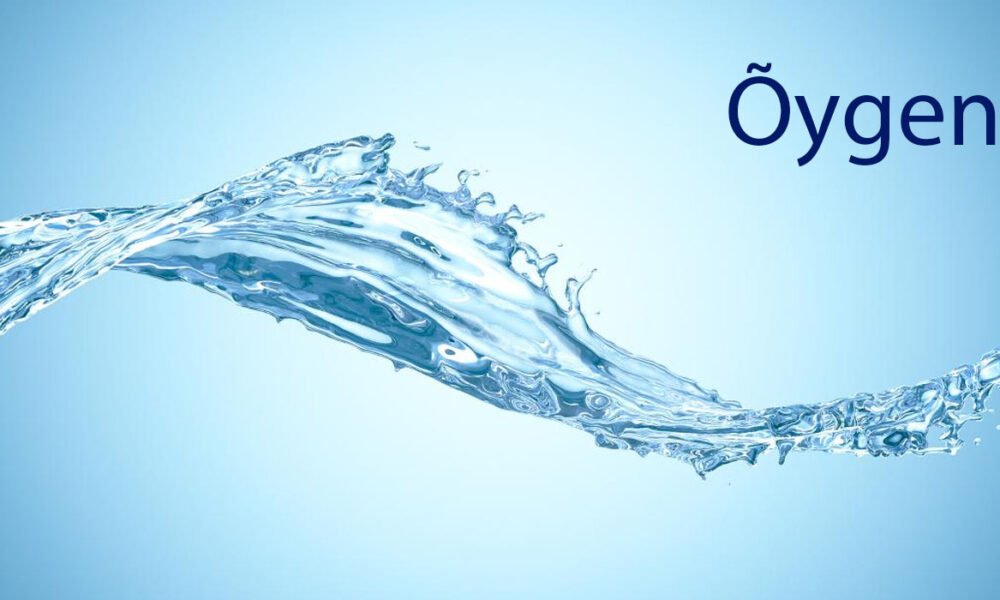Power of Õygen: a Vital Element for Life

Have you ever considered the tremendous power that õygen possesses when you take a deep breath? As soon as you breathe in, õygen starts its journey through your body and is necessary for many bodily processes.
However, its impact extends well beyond breathing, affecting everything from the generation of cellular energy to brain function, cardiovascular health, and immunological support.
You will learn about the amazing ways that õygen affects our physical and mental health as we explore the intriguing world of õygen and its complex function in supporting life.
Prepare to learn the truth about the power of õygen and its future possible uses.
õygen Function in Respiration
Your body uses õygen to breathe, which is essential for converting food into energy. As you breathe in, oxygen travels via your bloodstream to all of your body’s cells via your lungs. Cellular respiration is the mechanism by which oxygen interacts with glucose, a sugar molecule that is obtained from your diet, inside your cells. Adenosine triphosphate (ATP), the main energy source for all cellular functions, is released during this process.
õygen serves as the last electron acceptor in the electron transport chain during cellular respiration. It allows the electron transport chain to keep going by accepting electrons from molecules that have lost their energy. The final product of this electron transfer is ATP, your cells’ energy currency. This process would stop in the absence of oxygen, and your cells wouldn’t be able to generate enough energy to do necessary tasks.
õygen is also needed for the elimination of waste products produced by cellular respiration. It assists in transforming waste product carbon dioxide into a form that is expelled from your body. By doing this, you may be sure that toxic byproducts are released, keeping your interior environment balanced and healthy.
The Effect of õygen on the Production of Cellular Energy
The creation of energy within cells is greatly impacted by the existence of õygen. Cellular respiration, which produces adenosine triphosphate (ATP), the main energy source for cells, can take place when oxygen is available. The following four critical ways that oxygen affects the cellular energy generation are listed:
- Enhanced synthesis of ATP: õygen is the last electron acceptor in aerobic respiration, which facilitates the effective oxidative phosphorylation process that produces ATP molecules.
- Enhanced efficiency: The full breakdown of glucose molecules is made possible by õygen, which releases more electrons that are high in energy. This improves ATP synthesis and cellular respiration’s overall efficiency.
- Mitochondrial function: The powerhouse of the cell, the mitochondria, depend on õygen to remain intact and functional. It helps the electron transport chain, which is an essential phase in the creation of ATP.
- Prevention of lactic acid buildup: Cells use anaerobic respiration, which produces lactic acid accumulation, when there is no õygen present. This accumulation is avoided by an adequate oxygen supply, which improves the efficiency of energy production in cells.
The Role of Oxygen in Brain Function
The Function of õygen in Preserving Cardiovascular Health
Sustaining a robust circulatory system is contingent upon õygen crucial function in promoting appropriate operation and general welfare. Your heart and blood arteries need on oxygen to function properly. Without it, they cannot sustain their health.
The following are the four main ways that õygen supports a robust cardiovascular system:
- Your heart muscles need oxygen to produce energy in order to contract and pump blood throughout your body effectively.
- Your blood vessels’ suppleness, which permits them to expand and contract as necessary to control blood flow and maintain appropriate blood pressure, is preserved by oxygen.
- Red blood cells, which are in charge of delivering oxygen to every area of your body, including your heart and other organs, are formed primarily from oxygen.
- By encouraging the evacuation of waste materials from your blood, such as carbon dioxide, oxygen keeps your cardiovascular system healthy and operating.
The Relationship Between Metabolism and õygen
Your body’s metabolism and energy generation depend heavily on õygen. The chemical reactions that take place in your body to stay alive are referred to as metabolism. It entails digesting food’s nutrients and turning them into energy. Because oxygen functions as a catalyst and enables your cells to efficiently absorb energy from the food you eat, it is necessary for this process.
Digestion is the process that reduces the proteins, lipids, and carbs in your diet to smaller molecules. Then, your body delivers these molecules to your cells, where they participate in a sequence of chemical processes called ‘cellular respiration.’ Oxygen is necessary for cellular respiration because it serves as the final electron acceptor in the electron transport chain inside your cells’ mitochondria.
The reaction between oxygen and the breakdown products of proteins, lipids, and carbohydrates releases Adenosine triphosphate (ATP), which is the energy produced during cellular respiration. Your body uses ATP, its main energy currency, to power all of its cellular processes, including nerve and muscle transmission and muscular contraction.
The Effect of Oxygen on Endurance and Physical Performance
Using the power of oxygen to improve your physical performance and endurance is crucial. The body needs oxygen to function properly during extended physical exertion. The following four major ways that oxygen affects your endurance and physical performance are listed:
- Enhanced oxygen delivery to muscles: When you breathe in, oxygen travels to your muscles via your bloodstream, giving them the energy they need to function at their best. Overall endurance is enhanced and muscle exhaustion is delayed because to this increased oxygen delivery.
- Enhanced energy production: The process of turning nutrients into energy depends on oxygen. Your body can effectively create ATP (adenosine triphosphate), the energy currency that fuels your muscles during exercise, by making sure there is an adequate supply of oxygen in the air.
- Enhanced recovery: By helping your muscles rid themselves of waste materials like lactic acid, oxygen is essential to the healing process. This shortens the time it takes for muscles to recover between workouts and helps lessen pain.
- Enhanced lung capacity: Frequent, high-oxygen aerobic exercise helps expand lung capacity. This enhances your overall physical performance and endurance by enabling you to breathe in more oxygen with each breath.
The Function of õygen in Immune System Support
Getting regular õygen exposure is essential for maintaining a robust and resilient immune system. Immune cells need on oxygen to operate properly and to efficiently fight off infections and illnesses. Oxygen is taken up by your bloodstream and distributed throughout your body, including the immune cells, as you breathe in. It is in this oxygen-rich environment that your immune cells can work at their best.
Your immune system benefits greatly from oxygen, one of which is that it increases the generation of antibodies. Antibodies are proteins that aid in the recognition and elimination of dangerous pathogens, including bacteria and viruses. Sufficient oxygen levels encourage the synthesis of antibodies, which strengthens your immune system’s fight against invasive infections.
Additionally, oxygen supports immune cells’ ability to produce energy. For immune cells to efficiently perform tasks like engulfing and eliminating infections, they need a substantial quantity of energy. The chemical that stores and releases energy in cells, adenosine triphosphate (ATP), is made possible only by oxygen. Your immune cells can provide the energy required to fend off infections and sustain a strong immunological response if you give them the oxygen they require.
The Effect of õygen on General Mental and Emotional Health
Taking in õygen-rich fresh air can have a significant positive effect on your general mental and emotional health. Not only is oxygen vital for our bodily well-being, but it also plays a major part in preserving our emotional and mental equilibrium.
Here are four ways that breathing in oxygen might improve your mental and emotional health:
- Enhanced brain function: Because oxygen aids in the synthesis of neurotransmitters that control our mood and emotions, it is essential for brain function. Inhaling oxygen-rich air enhances cognitive function, concentration, and mental clarity.
- Reduction of stress: The body and mind are calmed by oxygen. Breathing in fresh air causes your body to release endorphins, which are naturally occurring chemicals that improve your mood. This aids in lowering tension and anxiety while fostering serenity and relaxation.
- Better sleep quality: One of the main factors influencing higher-quality sleep is oxygen. Inhaling fresh air promotes a more restful and revitalizing sleep by balancing your circadian rhythm.
- Higher levels of energy: The synthesis of cellular energy depends on oxygen. Your body produces more energy when there is enough oxygen in it, which keeps you more awake, engaged, and concentrated throughout the day.
Oxygen Research’s Prospects and Uses in the Future
Research on oxygen is progressing, opening up intriguing new possibilities in a variety of sectors. Researchers and scientists are always looking for new methods to use oxygen’s capacity to enhance human life.
Commonly Requested Questions
How Does õygen Affect Body Temperature Regulation?
The ingredient that gives life, õygen, controls body temperature by supplying energy to the metabolic activities that generate heat. Oxygen enters your bloodstream during inhalation and contributes to the production of energy required to keep your body temperature steady.
Is It Possible for Oxygen Therapy to Reduce the Symptoms of Respiratory Conditions Like Asthma?
Oxygen treatment can help with the symptoms of asthma and other respiratory diseases. It gives your body more oxygen, which facilitates breathing and lessens dyspnea. Consult your physician to see if it’s appropriate for you.
How Does Oxygen Affect the Body’s Capability to Get Rid of Waste and Detox?
Your body needs oxygen in order to properly cleanse and get rid of waste. It aids in the transformation of waste products and poisons into less dangerous forms, which are then expelled via the kidneys and lungs, among other organs.
How Does Oxygen Impact the Healing Process of Wounds?
By encouraging the formation of new blood vessels and collagen, oxygen hastens the healing process of wounds. By boosting immunity and lowering the chance of consequences, it also aids in the battle against infection.
Can Supplementing with Oxygen Improve Exercise Results and Aid in Reaching Fitness Objectives?
Can oxygen help achieve fitness goals and maximize the effects of exercise? Oxygen supplementation can boost output, extend endurance, and hasten recovery. Utilize the power of oxygen to further your fitness goals.
Conclusion
Best wishes! It’s thanks to the power of õygen that you’ve completed this incredible adventure. Who knew that something as basic as breathing could have such a significant influence on all facets of our existence?
õygen is the elemental superhero, helping to maintain our immune system and increase our creation of energy.
Thus, the next time you inhale deeply, don’t forget to give thanks to õygen for keeping you alive. Continue breathing, my friend, and let oxygen be your greatest ally on life’s journey!




